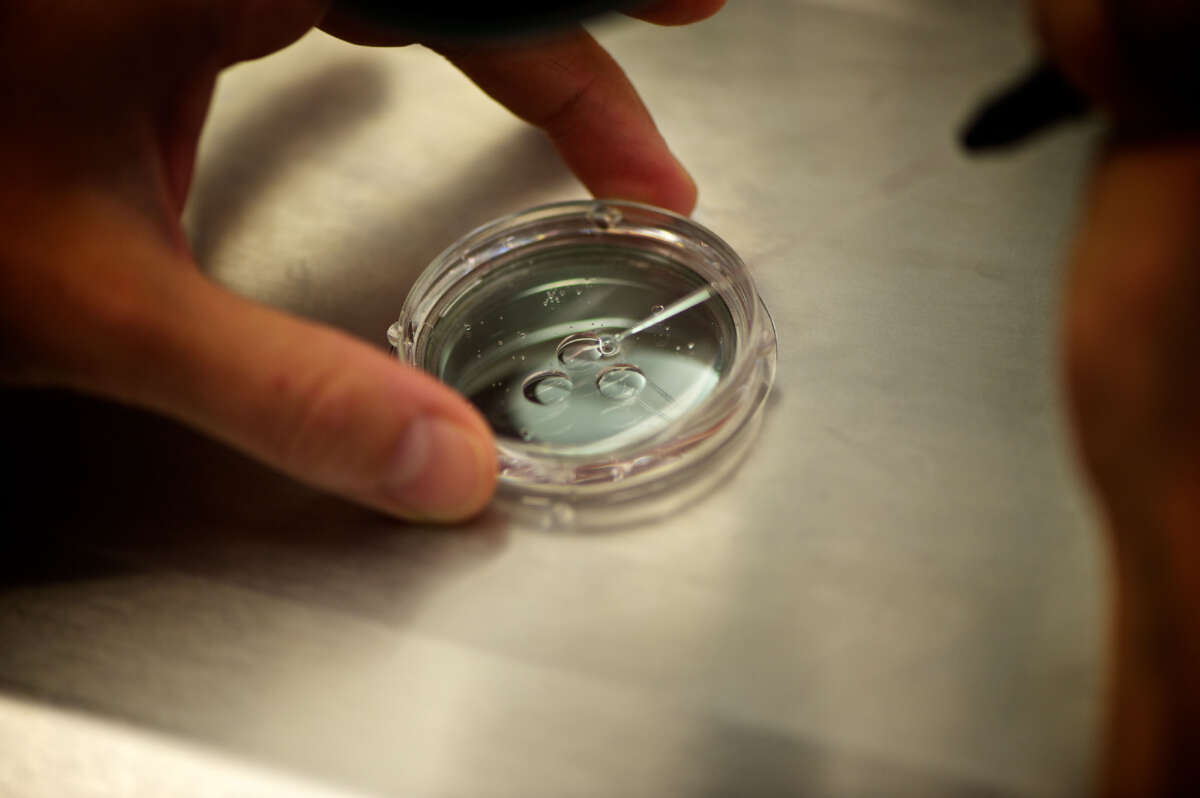The University of Alabama at Birmingham health system announced on Wednesday that it was suspending in vitro fertilization (IVF) treatments for its patients as it assessed what a ruling from the state Supreme Court would mean regarding the legal status of fertilized embryos.
In its decision issued last Friday, the Alabama Supreme Court furthered the errant, right-wing “personhood” movement that purports that fertilized eggs are human beings, whose “rights” deserve to supersede those of the pregnant person.
The case centered on the accidental destruction of frozen embryos at an IVF clinic in Mobile, Alabama. Litigants had sought to sue the clinic in a wrongful death lawsuit, which the clinic said was improper because no person had actually died. The court, however, ruled that the lawsuit should be allowed to proceed, claiming that embryos were essentially “children” in a legal sense. Notably, Chief Justice Tom Parker cited Bible verses to justify the court’s ruling, in a clear violation of the separation between church and state.
“We believe that each human being, from the moment of conception, is made in the image of God, created by Him to reflect His likeness,” Parker said in one passage.
As a result of the ruling, the University of Alabama at Birmingham’s (UAB) Division of Reproductive Endocrinology and Infertility paused its IVF program.
“We are saddened that this will impact our patients’ attempt to have a baby through IVF, but we must evaluate the potential that our patients and our physicians could be prosecuted criminally or face punitive damages for following the standard of care for IVF treatments,” read a statement from UAB spokesperson Savannah Koplon.
The program will continue to perform egg retrievals, they said, but will not proceed with other actions, including the combining of eggs and sperm in a lab for fertilization. The final stage of the IVF process — the implantation of an embryo into a patient’s uterus — will also be suspended, as that is typically followed up with the disposal of other embryos that were created during the process.
“Everything through egg retrieval remains in place. Egg fertilization and embryo development is paused,” a statement from the university elaborated.
Barbara Collura, the president and CEO of Resolve: The National Infertility Association, lamented the decision.
“The University of Alabama at Birmingham (UAB) health system — the largest healthcare system in the state — has been forced to make an impossible decision: pause IVF procedures for those hoping to build their families, or put their patients and doctors at risk of prosecution,” Collura said, adding that:
For those living with infertility and trying to build a family, a ‘normal’ IVF cycle is hard enough. There are hundreds, if not thousands, of people who are right now in the middle of a physically and emotionally challenging medical process to fulfill their dream of a baby. … Now, less than a week after the Alabama supreme court’s devastating ruling, Alabamans in the midst of seeking treatment have had their lives, their hopes and dreams crushed.
The ruling from Alabama’s highest court could have disastrous implications elsewhere. Indeed, in neighboring Florida, the ruling has already been cited by a conservative group that has filed a brief to the state’s Supreme Court urging justices to block a ballot initiative proposal that would enshrine the right to an abortion up to the point of fetal viability in Florida’s state constitution. The state’s conservative-leaning Supreme Court is set to make a decision on whether the question can be included on the November ballot by April 1.
Imani Gandy, senior editor of Law and Policy for the Rewire News Group, warned that, following the IVF ruling from Alabama, opponents of reproductive rights would set their sights on other targets.
“When the naysayers start writing op-eds about how there’s no way they’re going to come for contraception, will you please listen to me when I say they are going to come for contraception,” Gandy wrote in a social media post. “The same naysayers insisted IVF would be safe. Nothing is safe.”
